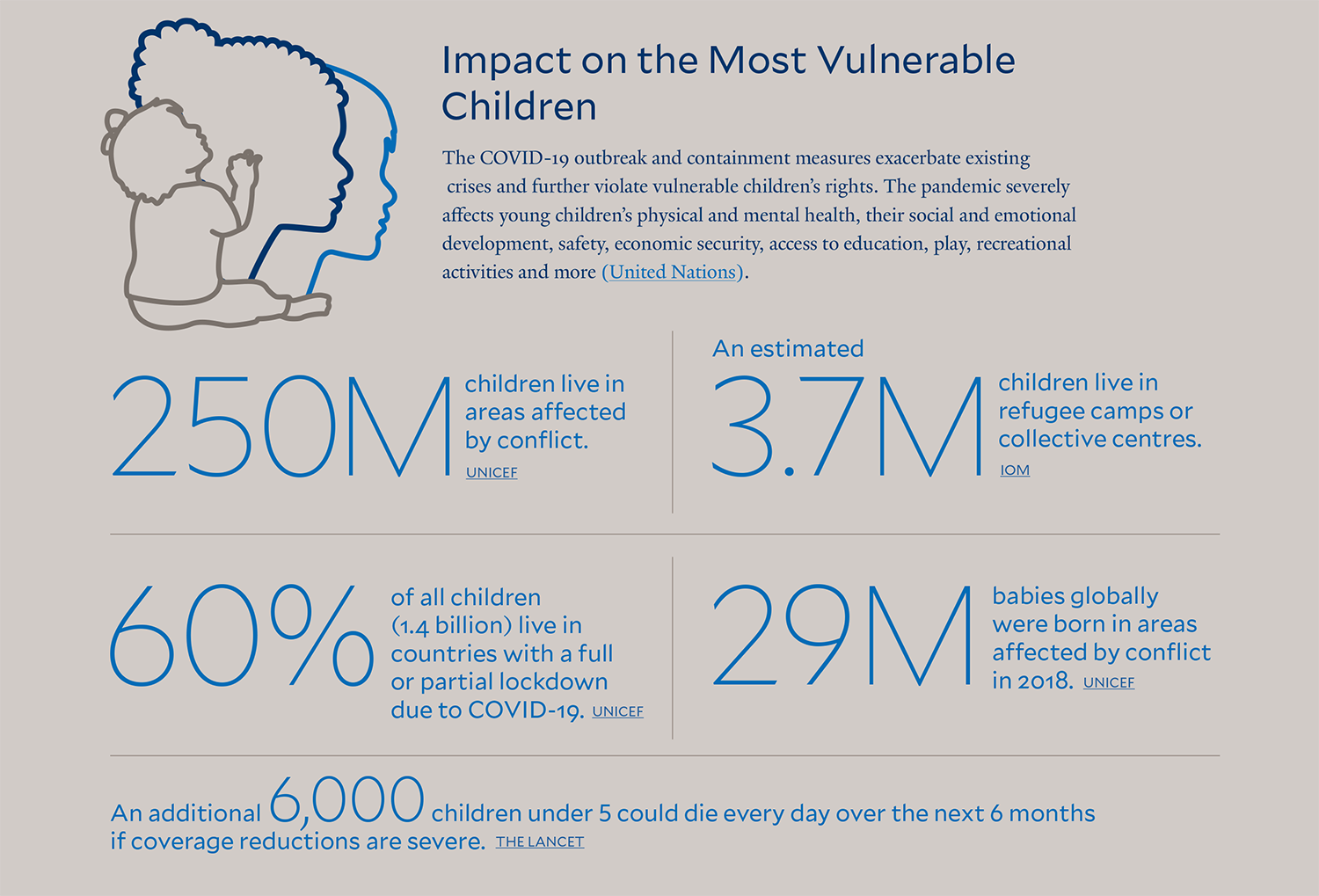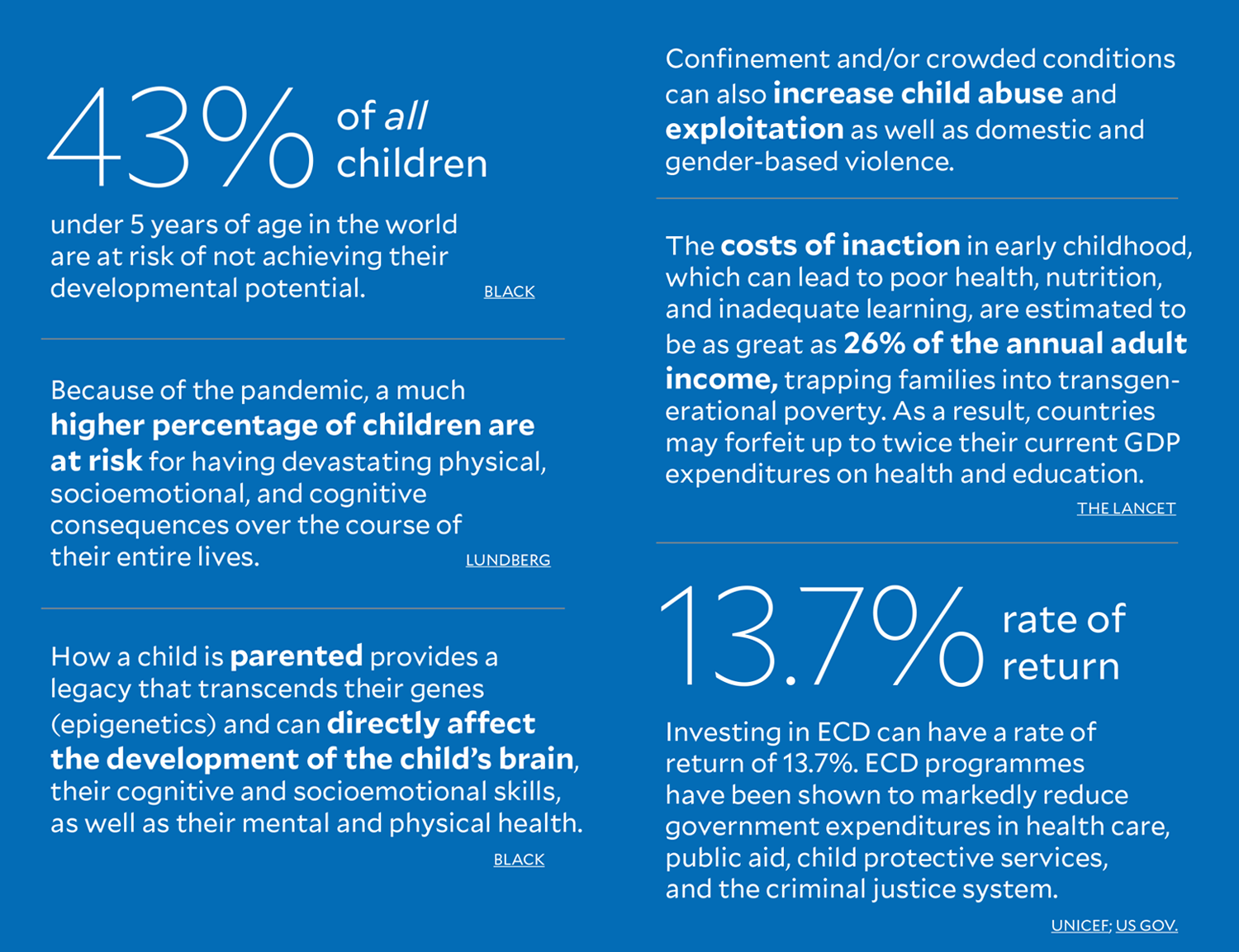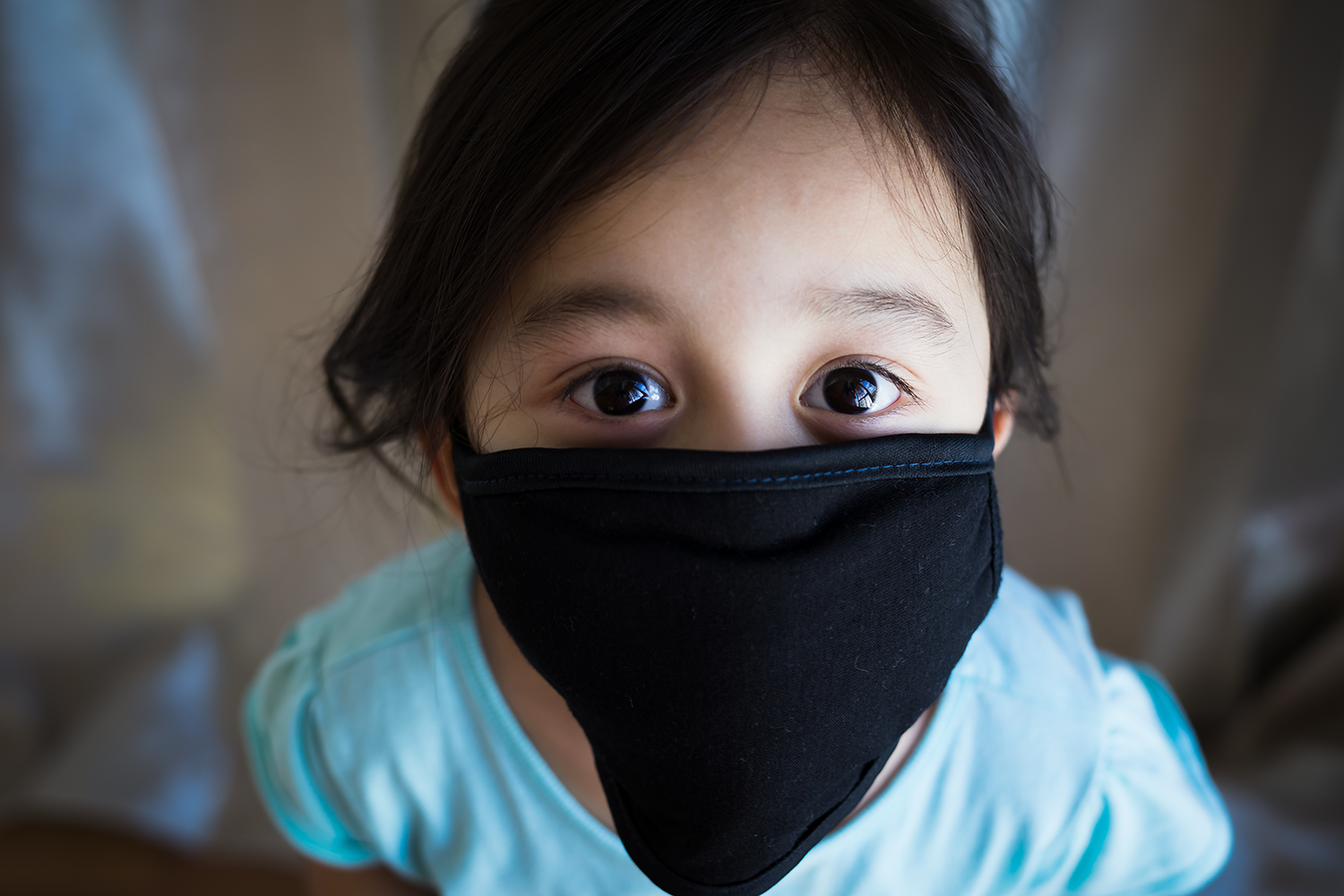Key messages
Portrait of Asian toddler girl wearing black fabric mask for protection from Covid-19. © ellinnur / 123rf images.
in this global pandemic that warrants the participation of all members of society for containment, and where inequalities become starkly evident and pose greater risks to the vulnerable, engaging families and children is imperative. ecd services can be a cost-effective and sustainable way to empower families and communities to interrupt cycles of poverty and violence, as well as build resilience and social cohesion.
Impact on the most vulnerable children
The COVID-19 outbreak and containment measures exacerbate existing crises and further violate vulnerable children’s rights. The pandemic severely affects young children’s physical and mental health, their social and emotional development, safety, economic security, access to education, play, recreational activities and more (United Nations, 2020).

ADA compliant version:
- 250 million children live in areas affected by conflict (UNICEF, 2020).
- 29 million babies globally were born in areas affected by conflict in 2018 (UNICEF, 2019).
- 3.7 million children live in refugee camps or collective centres (IOM, 2020).
- 60% of all children (1.4 billion) live in countries with full or partial lockdown due to COVID-19 (UNICEF, 2020).
- An additional 6,000 children under 5 could die every day over the next six months (The Lancet, 2020).
The economics of human potential: Why now is the time to invest in early childhood development (ECD)

ADA compliant version:
- 43% of all children under 5 years of age in the world are at risk of not achieving their developmental potential (Black, 2016).
- Because of the pandemic, a much higher percentage of children are at risk for having devastating physical, socioemotional, and cognitive consequences over the course of their entire lives (Lundberg, 2012).
- How a child is parented provides a legacy that transcends their genes (epigenetics) and can directly affect the development of the child’s brain, their cognitive and socioemotional skills, as well as their mental and physical health (Black, 2016).
- Confinement and/or crowded conditions can also increase child abuse and exploitation as well as domestic and gender-based violence.
- The costs of inaction in early childhood, which can lead to poor health, nutrition, and inadequate learning, are estimated to be as great as 26% of the annual adult income, trapping families into transgenerational poverty. As a result, countries may forfeit up to twice their current GDP expenditures on health and education (The Lancet, 2017).
- Investing in ECD can have a rate of return of 13.7%. ECD programmes have been shown to markedly reduce government expenditures in health care, public aid, child protective services, and the criminal just system (UNICEF, 2017; US GOV, 2014).
Topics & initiatives
|
|
JOIN THE CONVERSATION
For breaking news and to stay connected, follow us on social media. Sign up to get our E-News delivered straight to your inbox.



